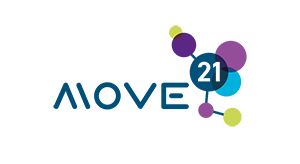Upscaling is a critical component of the MOVE21 project, ensuring that successful innovations and solutions can be expanded and implemented beyond the so-called test sites. The project features Living Labs in Oslo, Gothenburg, and Hamburg, where various multimodal and interconnected hubs for people and freight are tested and refined. These Living Labs serve as real-world environments for experimentation, allowing for the practical application and evaluation, to then aim for upscaling within the Living Lab cities. As we have succesfully been able to start on upscaling, we would like to share these best practices of the cities.
By upscaling successful solutions from these Living Labs, MOVE21 also aims to create a ripple effect, spreading innovative practices across Europe. Next to upscaling, therefore the project also will shortly publish insights on transferability potential for other urban areas to replicate the succesfully tested innovations and solutions of MOVE21.
Upscaling the Kaia Mobility Hotel
The Kaia Mobility Hotel, the first of its kind in Oslo, is a public-private initiative co-funded by the EU’s MOVE21 project. Located in the city centre, it aims to promote bicycle-based urban logistics, reduce truck traffic and support the city’s zero-emission goals.
The hotel serves as a hub for urban logistics, providing services such as vehicle purchase and maintenance, charging facilities, storage and rest areas for workers. Planned expansions include small-scale consolidation, battery swapping stations and mini-warehouses.
 In terms of upscaling, the Kaia Mobility Hotel continues its mission to make it easier for companies in Oslo to use cargo bikes and city-friendly vehicles. Since the opening, a new customer has taken advantage of the services offered by Mobility Solutions at the hotel, and a battery exchange station has been installed to enable batteries to be changed in a matter of seconds. Several new partnerships are also being formed with the aim of expanding the fleet of different types of cargo bikes and small electric vehicles. In collaboration with E-mobility Rentals, a development project is underway to adapt mini light electric vehicles to Nordic conditions, and in collaboration with predictive analytics software company ThreshPoint Analytics, many new cargo bikes by VOK are on their way to join the fleet of Wolt couriers operating with the hotel as a core hub.
In terms of upscaling, the Kaia Mobility Hotel continues its mission to make it easier for companies in Oslo to use cargo bikes and city-friendly vehicles. Since the opening, a new customer has taken advantage of the services offered by Mobility Solutions at the hotel, and a battery exchange station has been installed to enable batteries to be changed in a matter of seconds. Several new partnerships are also being formed with the aim of expanding the fleet of different types of cargo bikes and small electric vehicles. In collaboration with E-mobility Rentals, a development project is underway to adapt mini light electric vehicles to Nordic conditions, and in collaboration with predictive analytics software company ThreshPoint Analytics, many new cargo bikes by VOK are on their way to join the fleet of Wolt couriers operating with the hotel as a core hub.
API integration to Ruter-app
The City of Oslo, in collaboration with Urban Sharing, has developed a Mobility as a Service (MaaS) project to facilitate seamless integration between public and private mobility providers in the app of Oslo’s public transport authority, Ruter. The project will use an Application Programming Interface (API) developed by Urban Sharing, which is a simple and lightweight version of the existing Transport Operator to Mobility Provider (TOMP) standard. The API is language agnostic, allows mobility operators to handle customer support directly, and maintains GDPR compliance by excluding personally identifiable information. The aim is to enable partnerships between public and private mobility operators, improving multi-modal travel uptake and reducing car ownership, congestion and pollution, and enhancing infrastructure investments. Urban Sharing plans to pilot this approach with active mobility operators and create guidelines for fostering smoother collaboration between public and private entities in the European mobility space.
By its nature, this measure applies to the entire city, so direct upscaling is not possible, unless it is seen as adding or integrating other services. As of November 2024, Oslo has introduced a new micromobility regulation that requires e-scooter providers to share operational data with Ruter. This initiative aims to further integrate micromobility options into Oslo’s public transport system, potentially enabling future expansion within Oslo and its functional urban area in the medium term.
Learn more about the upscaling initiatives in Gothenburg and Hamburg. For detailed insights into the upscaling process within MOVE21, refer to the following documents: D3.3 Upscaling plan and transferability assessment, D4.3 Upscaling Plan and Transferability Assessment – Governance and D5.3 Technologies Upscaling and transferability assessment.



